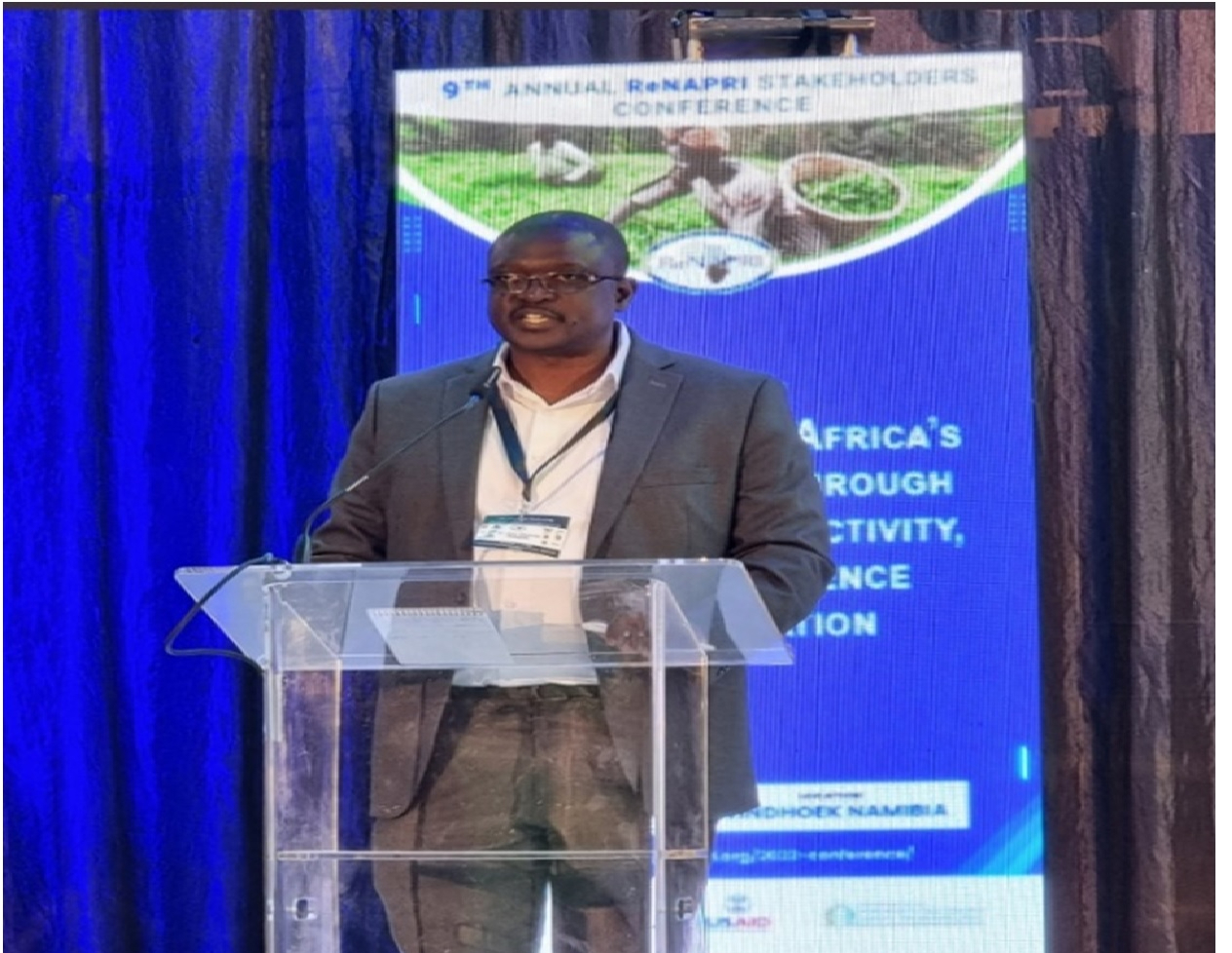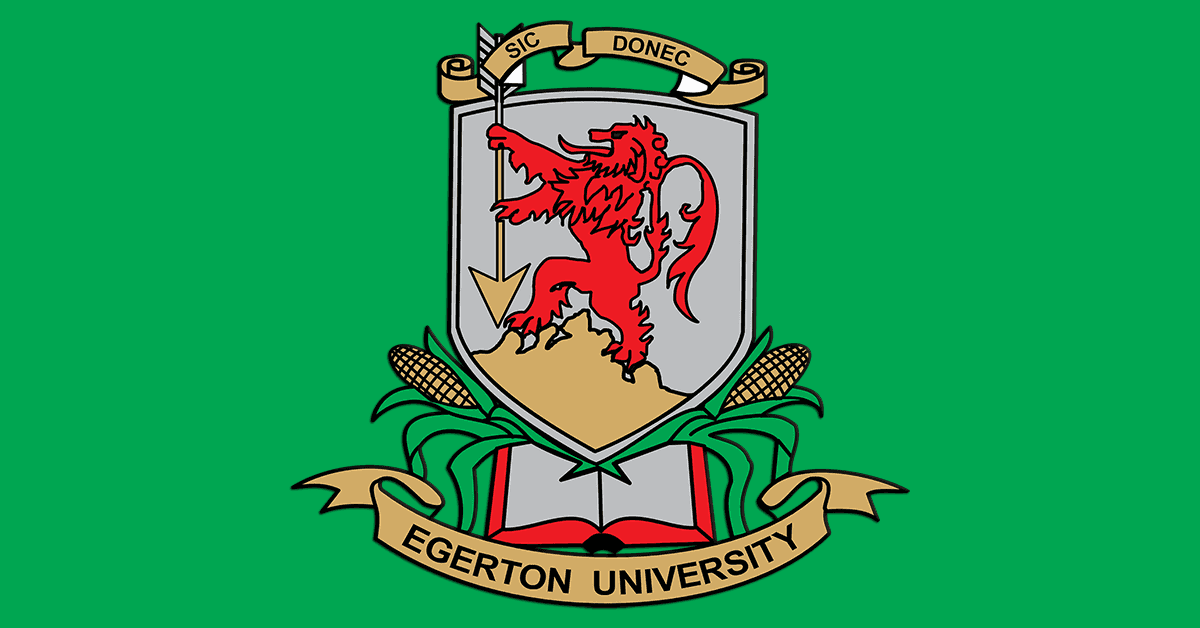
Tegemeo Institute Participates in the 9th Annual ReNAPRI Stakeholders Conference
Tegemeo Institute Participates in the 9th Annual Regional Network of Agricultural Policy Research Institutes (ReNAPRI) Stakeholders Conference between 1st and 3rdNovember 2022, Windhoek Namibia.
The theme of the 9th Annual ReNAPRI Stakeholders Conference was “Looking Ahead: Strengthening Africa’s food system through increased productivity, climate resilience and adaptation”. The Institute was physical represented by Prof Gideon Obare, Dr Lilian Kirimi, Dr Mercy Kamau and Dr John Olwande besides other staff who joined the sessions virtually.
Dr John Olwande, Research Fellow, Tegemeo Institute, Egerton University made the key note presentation in a session titled “Megatrends Affecting African Food Systems: Implications for Government Actions. The overall objective of the session was to encourage understanding of the major trends that are influencing the trajectory of African food systems, with a view to identifying priority areas of action by governments, private sector and donors for sustainable and resilient food systems on the continent.
In his presentation, Dr. Olwande presentation identified Population growth both in the rural and urban areas, Economic transformation, Economic transformation, Climate change and variability, Global and region shocks, and Regional advancements in technological innovation as the megatrends affecting the African food systems.
Dr Olwande noted that the priority repossesses and actions that African governments and stakeholders in the agricultural sector need to focus on include: raising agricultural productivity on existing farmland through increasing fertilizer use on farmland, increasing efficiency of fertilizer use on farms and land security especially for women farmer. The other priority response would be strengthening support for national adaptive Research & Development and Education. by increasing funding for and strengthen the performance of national R&D&E, improve the policy/enabling environment, encourage and incentivize innovation and entrepreneurship, and create and maintain an enabling environment that accelerate the pace of investment in communication infrastructure and minimize. During the panel discussion, it came out that indeed the national agricultural research and extension systems are generally weak in Africa, which technically affects innovation and employment of technologies as well as management practices necessary for agricultural productivity growth. However, there have been pockets of success in the region and in particular Ethiopia where cereal production has tripled in the past 3 years.
This is attributed to the fact that the extension workers in Ethiopia is more than half of the total in Sub-Sahara Africa and the government has tripled their funding to national agricultural research.
Dr Lilian Kirimi (ReNAPRI Research Director (Kenya) & Tegemeo Institute) was a panelist on a side event by the Center for Africa –Europe relations (ECDPM). This session presented and and discussed the results of two initiatives that provide an analytical approach to assist with the prioritization of policy reforms and investments for specific agricultural value chains and a methodology for attracting sustainable private investments into agri-food systems: The Policy Prioritization through Value chain Analysis (PPVC) approach in ReNAPRI countries, focusing on case studies in Tanzania and Kenya, and the AgrInvest project, a FAO-ECDPM investment methodology to foster sustainable investments in African food systems (case studies in Burkina Faso and Kenya).
ReNAPRI has changed to African Network of Agricultural Policy Research Institutes (ANAPRI) with a membership of 16 research institutes spread across 16 countries in the continents. Tegemeo Institute held a side meeting with the team from Michigan State University to figure out how ANAPRI can be strengthened to support national research institutions including Tegemeo.







